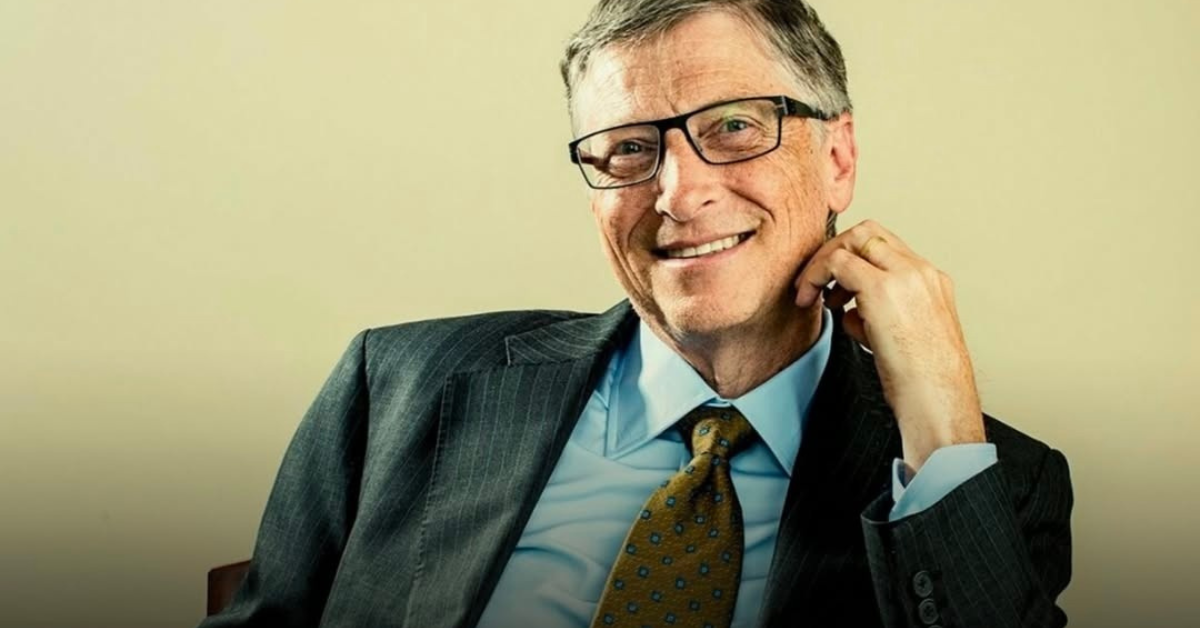Who Is the Most Powerful Doctor in the World? Why Bill Gates Holds That Title
When we think of the world’s most powerful doctors, we typically envision distinguished figures in white coats with multiple medical degrees and decades of clinical experience. Yet in today’s complex global health landscape, one of the most influential forces shaping medical initiatives, research priorities, and healthcare policies worldwide has never set foot in medical school or treated a single patient. Bill Gates—tech pioneer, entrepreneur, and philanthropist—has emerged as arguably the most powerful individual in global health, despite lacking any formal medical credentials.
This paradox raises fascinating questions about how power and influence in medicine have evolved in the 21st century. What does it mean to be a “doctor” in today’s interconnected world? Is the power to heal now overshadowed by the power to fund, direct, and shape the future of healthcare on a global scale?
The Tech Titan Who Became a Health Leader
Bill Gates’ journey from software entrepreneur to global health heavyweight is as remarkable as it is unconventional. As the co-founder of Microsoft, Gates amassed extraordinary wealth that would later become the foundation for his second act as one of history’s most prolific philanthropists. In 2000, he and his then-wife Melinda established the Bill & Melinda Gates Foundation, which has since grown into the world’s largest private charitable foundation with an endowment of nearly $70 billion.
The foundation’s health-focused initiatives alone command resources that dwarf the entire healthcare budgets of many nations. Gates has directed billions toward combating infectious diseases like malaria, HIV/AIDS, and tuberculosis—conditions that disproportionately affect the world’s poorest populations but have historically received limited attention from pharmaceutical companies focused on more profitable Western markets. According to a comprehensive analysis by Devex, the foundation had committed over $53.8 billion in grants since its inception through 2020, with approximately 40% dedicated directly to global health initiatives.
When Gates speaks about global health priorities or announces a new funding initiative, health ministers, researchers, and medical professionals worldwide listen. His foundation’s grants can single-handedly launch or sustain entire research programs, influence public health policies, and determine which diseases receive priority attention on the global stage.
Bill Gates and Global Health Philanthropy
The scale of Gates’ influence in health is difficult to overstate. The Gates Foundation has committed over $50 billion to global health initiatives since its inception. To put this in perspective, the foundation’s annual global health spending regularly exceeds the entire budget of the World Health Organization (WHO)—the United Nations agency officially tasked with directing international health work.
This financial leverage translates into unprecedented influence. The foundation doesn’t just fund existing health programs; it actively shapes research priorities, supports new technologies, and influences how health systems develop in low and middle-income countries. Gates’ backing has been instrumental in several major health achievements, including:
- The near-eradication of polio, with cases reduced by more than 99% since the launch of the Global Polio Eradication Initiative, which the Gates Foundation heavily supports
- Dramatic expansions in childhood vaccine access through Gavi, the Vaccine Alliance, which has helped immunize over 760 million children since 2000
- Pioneering research into neglected tropical diseases that affect billions but historically attracted minimal research funding
- Development of new diagnostic tools, treatments, and prevention strategies for malaria, helping reduce mortality rates by over 60% in some regions
Gates’ approach merges business acumen with philanthropic aims. He approaches global health challenges with the same systems-thinking that made Microsoft successful—identifying inefficiencies, investing in scalable solutions, and rigorously measuring outcomes. This technocratic mindset has introduced new paradigms to global health, emphasizing quantifiable results and cost-effectiveness.
How Influence Outweighs Credentials
The Gates case illustrates how, in contemporary global health, the power to effect change often lies less in clinical expertise than in the ability to mobilize resources, influence policy, and catalyze innovation. Gates’ influence operates through multiple channels:
Agenda-Setting Power
The foundation’s immense resources allow it to elevate certain health challenges over others. When Gates declares a disease or health issue a priority, it typically attracts additional funding from governments and other donors. This ability to set the global health agenda represents extraordinary influence that few traditional medical authorities possess.
Public-Private Partnerships
Gates has pioneered a model of health intervention that brings together governments, businesses, NGOs, and academic institutions. Initiatives like the Coalition for Epidemic Preparedness Innovations (CEPI), co-founded with the help of Gates Foundation funding, exemplify this approach. During the COVID-19 pandemic, CEPI played a crucial role in accelerating vaccine development.
Technological Solutions
Consistent with Gates’ background, the foundation emphasizes technological and data-driven approaches to health challenges. This has led to investments in vaccine development platforms, disease surveillance systems, and diagnostic technologies that might not have emerged through traditional public health channels.
Policy Influence
Beyond direct funding, the foundation engages extensively in advocacy and policy development. Its representatives regularly participate in high-level meetings with government officials, international organizations, and other stakeholders. This access allows Gates to shape how health policies are formulated and implemented globally.
Criticism and Controversy
Gates’ outsized influence in global health has not escaped criticism. Concerns about his role broadly fall into several categories:
Democratic Accountability
Unlike elected officials or appointed health authorities, private philanthropists like Gates are not directly accountable to the public. Critics argue that giving individuals such significant influence over global health priorities represents a democratic deficit, allowing wealthy donors to shape health policies affecting millions without corresponding oversight.
Potential Conflicts of Interest
Some critics point to the foundation’s investment portfolio, which has included stakes in pharmaceutical and food companies, raising questions about potential conflicts of interest. Though the foundation maintains a firewall between its investment and programmatic activities, the perception of conflicts persists.
Western-Centric Solutions
Gates has been criticized for promoting technological and market-based solutions that may not always align with local contexts or address underlying social determinants of health. Some public health experts argue that his approaches sometimes privilege Western scientific paradigms over indigenous knowledge and community-led initiatives.
Consolidation of Power
The sheer scale of Gates’ influence has led some to question whether it’s healthy for global health priorities to be so heavily influenced by a single foundation. This concentration of power, critics suggest, could crowd out alternative approaches and perspectives.
During the COVID-19 pandemic, Gates became a target for conspiracy theorists who falsely claimed he planned to use vaccines to implant microchips in people. While these allegations were baseless, they highlighted the contentious nature of Gates’ prominence in global health and the skepticism some harbor toward unelected actors wielding significant influence in the field. The World Health Organization even addressed this as part of their efforts to combat vaccine misinformation during the pandemic.
Gates himself has acknowledged these criticisms, noting in his 2021 annual letter: “The foundation’s resources are substantial, but they are a drop in the bucket compared to what governments spend.” He has consistently advocated for stronger public health systems and increased government funding for health initiatives.
The Evolving Definition of a Health Leader
Bill Gates represents a new kind of health leader—one whose power derives not from medical expertise or political authority but from financial resources, technological vision, and entrepreneurial approach. This evolution reflects broader shifts in how complex global challenges are addressed in the 21st century.
Traditional medical authorities—physicians, researchers, and public health officials—still play crucial roles. Clinical knowledge and scientific expertise remain foundational to medical progress. Yet Gates’ influence highlights how the levers of power in global health now extend far beyond hospital walls and research laboratories.
This transformation raises important questions:
- Should private individuals, however well-intentioned, wield such significant influence over global health priorities?
- How can we ensure that diverse perspectives and needs—particularly those of communities most affected by health challenges—are represented in decision-making processes?
- What mechanisms of accountability should apply to philanthropic actors in global health?
The Future of Health Leadership
As we look to the future, the model of health leadership personified by Gates appears likely to persist and potentially expand. Other tech billionaires, including Mark Zuckerberg, Priscilla Chan, and Jack Dorsey, have made substantial commitments to health initiatives, suggesting that the intersection of technology wealth and health philanthropy will continue to shape global priorities.
Yet there are also signs of evolution. The COVID-19 pandemic exposed weaknesses in global health systems and highlighted the continued importance of robust public institutions. There is growing recognition that addressing complex health challenges requires not just technological solutions and financial resources but also strong governance structures, community engagement, and attention to social and economic factors that influence health outcomes.
Gates himself has evolved in his approach, increasingly emphasizing the importance of health equity and community leadership. The foundation has expanded its focus to include social determinants of health and strengthened partnerships with local organizations in the countries where it works.
Conclusion
The question of who is the “most powerful doctor in the world” ultimately reveals how profoundly the landscape of global health has changed. In today’s complex health ecosystem, power takes many forms—from the traditional authority of medical expertise to the transformative potential of technological innovation and the leverage of financial resources.
Bill Gates embodies a new paradigm of health leadership that challenges conventional definitions of what it means to be a “doctor.” Without ever earning a medical degree or treating patients, he has helped save millions of lives through strategic philanthropy, advocacy, and innovation.
This evolution offers both promise and peril. The entry of new actors with substantial resources has accelerated progress against some of humanity’s most devastating diseases. Yet it has also raised legitimate concerns about accountability, representation, and the appropriate balance between private initiative and public responsibility.
As we navigate these complex dynamics, perhaps the most important insight is that no single individual or institution—not even one with Gates’ extraordinary resources—can address global health challenges alone. The most effective approaches will likely combine the innovation and agility of philanthropic initiatives with the legitimacy and reach of public institutions, the expertise of medical professionals, and the lived experience and knowledge of communities.
In this more collaborative vision of global health leadership, the question is less about who holds the most power and more about how different forms of power and expertise can be combined and held accountable in service of humanity’s shared wellbeing.





